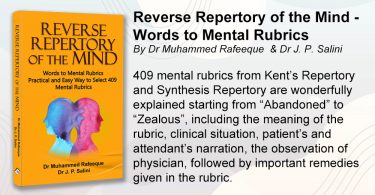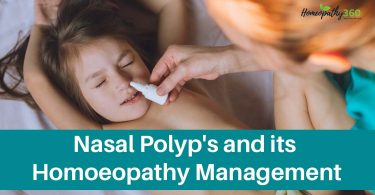Abstract: We study the dose of medicine which has to be given to the patient in posology. One of the major component of posology is pharmacopollaxy which simply means repetition of dose or Medicamental repetition. Repetition of dose is dose to continue rhythm of the potency of the previous dose which is already in action. Generally after administering a dose one must wait and observe the action of entire dose of medicine then decided whether it can be repeat or to continue the curative process on the basis of organon of medicine under section 245 to 251.
Keywards: Posology, Dose, Pharmacopollaxy, Pathogenesis
Introduction: In homeopathy the selection of proper medicine is probably the most essential thing that matters but after the remedy has been selected at administerd in proper potency. The physician should know the proper period of repeating of dose. It includes in section 245 _251.
In section 246, 5th edition- According to Dr Hahnmenn to achieve rapid cure three conditions are to be full field.
1-Similimum – The medicines selected with atmost care should we perfectly homeopathic.
2-Minimum dose- A dose which produce the least possible excitation of vital force and yet
sufficient to effect the necessary change in it.
3-Repetition- The best selected medicine should be repeated at suitable interval.
Instructions of Dr. Hahnemann regarding repetition of dose as per 5th edition of “organon of medicine”
1. Condition and progress of patient
– Perceptible and continue progress of improvement contraindicates repetition.
– Repetition may be continued till either recovery is used or different groups of symptoms
arise and does demand different remedy.
– If the old symptoms comes back to stay then a repetition of the doors is necessary.
2. Nature of disease
– In chronic disease- interval of 14, 12, 10, 8 or 7 days.
– In chronic diseases resembling a cases of acute disease – At Still shorter interval.
– In acute disease it very shorter periods every 24, 12, 8, 4 hours in the very acutest every hour
up to as often as every 5 minutes.
3. Nature of the medicine
i) Potency
– Low potency may be repeated frequently depending on the nature of the disease.
– High potency- usually not to be repeated frequently.
– Repeat only when the action is over.
ii) Duration of action
– Short acting medicines maybe repeated frequently.
– Deep acting medicines usually less frequently repeated.
iii) Medicines having alternating action
– Repeat when no improvement follows after a correct prescription of a medicine having
alternating action.
Views of other stalwart regarding repetition of dose.
- Dr. Kent’s Instruction of repetition of dose in second prescription that the first medicine should be repeated:
- When improvement remains stand still.
- When the original symptoms written after a temporary disappearance having the same general and particular is formally (Kent’s 11th observation).
- Dr. T.K. Moore – Minutes or hours in acute, a week or months in chronic. Never repeat while amelioration holds.
3. Dr. M.L. Tyler – In sudden attacks I often change the remedy in half an hour.
4. Dr Jahr – Remember when tempted to repeat, it is better to come in late than too soon.
5. Dr. Sir John Weir – As a general rule in acute cases the repetition should be frequent, until a decided remission of the symptoms occur. If there is no improvement after a few hours, a fresh medicine should be sought.
6. Dr. J.H. Clarke – If the symptoms for which a remedy is given are removed and new symptoms appear, withhold the hand if you wish the case to go on to recovery.
7. Dr. Lippe – After a prescription is giving relief do not give a remedy for any new symptom in a less vital part.
Conclusion: A physician must have a thorough knowledge about drug pathogenesis and the nature of the disease so that he can understand the general condition physically and mentally of the patient then after he can decide that patient have to be wait till the earlier medicinal action is exhausted or he requires further dose to improve.
Reference:
- A textbook of homoeopathic pharmacy- Dr. Mandal and Mandal
- A treatise on organon of medicine- Dr. Ashok Kumar Das
- The chronic diseases, their peculiar nature and their homoeopathic cure- Dr. Hahnemann Kents 12 ovservation
Written by – Dr. Varsha Pipalde
MD Scholar (Homoeopathic Pharmacy) Batch- 2020-2021
GUIDE– Dr. Chetna Pandey Government Homoeopathic Medical College & Hospital, Bhopal. M.P



